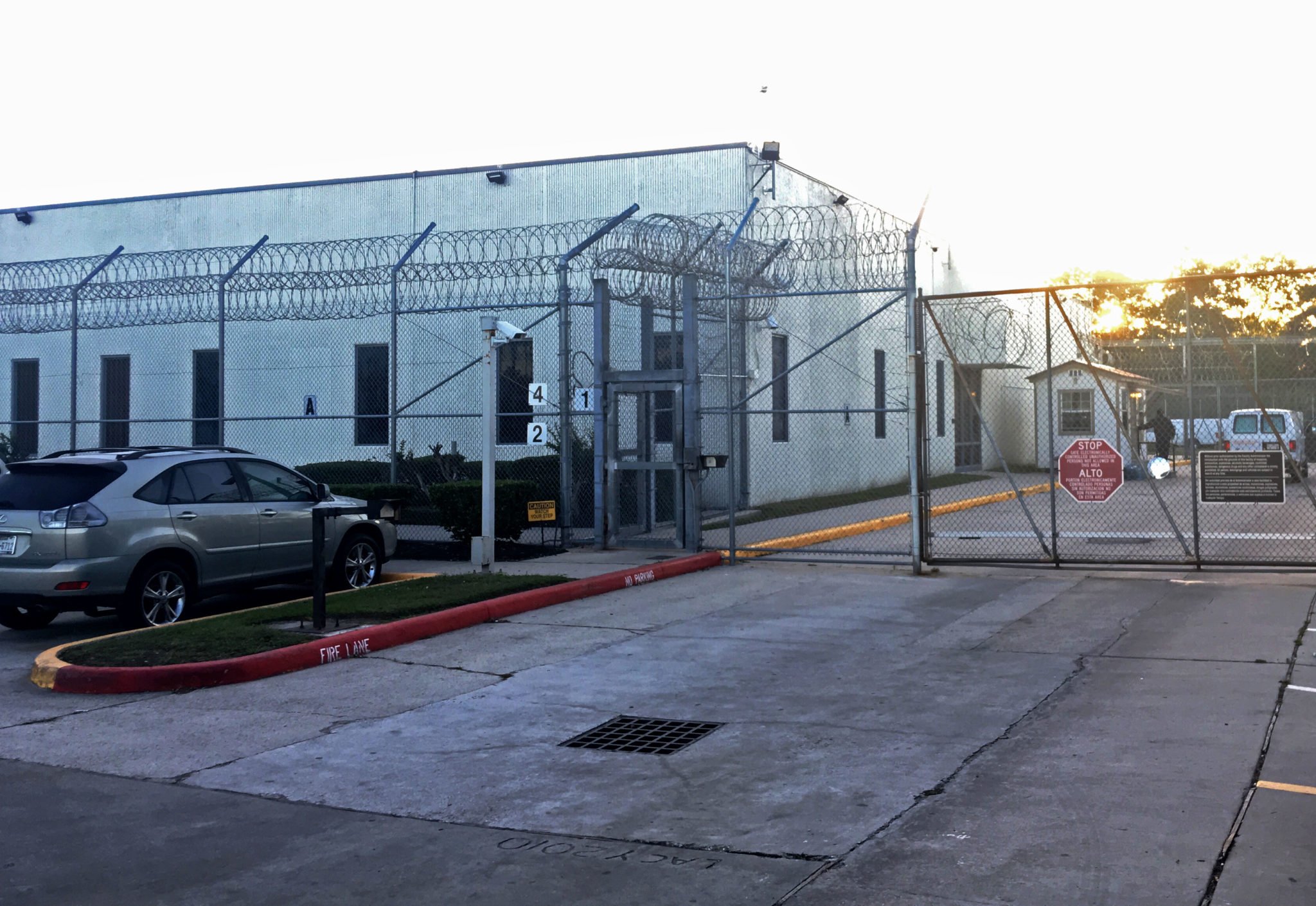Donald Trump is a private prison kind of guy. America’s two for-profit titans of incarceration—GEO Group and CoreCivic—pitched in $500,000 for his inauguration. Almost immediately after Trump took office, his Justice Department reversed an Obama-era move to partially phase out federal use of the companies, sending their stocks soaring. As of August, a record 55,000 immigrants languished in detention, mostly in for-profit facilities and many in Texas. Yet, somehow, the future looks murkier than ever for the poor prison profiteers.
Here’s a recent sampling of headlines from Seeking Alpha, a news service for investors: “Bank of America stops lending to private prison operators,” “Democrats’ lead in polls highlights political risks,” and “More shun U.S. private prison financing.”
Such bearishness results from a recent spate of high-profile repudiations, the fruit of a yearslong campaign to drive a wedge between the federal government and private prisons. Since March, the industry has lost funding from at least five major banks: Wells Fargo, JPMorgan Chase, Bank of America, SunTrust, and BNP Paribas. Many Democratic presidential contenders have also pledged to end federal contracting with for-profit jailers altogether, including Joe Biden, Kamala Harris, Elizabeth Warren, and Bernie Sanders, who introduced a bill to do so back in 2015. A bill to end private prisons in California is currently awaiting the governor’s signature.
For many advocates, it’s a long-overdue reckoning. “These are companies that have made billions of dollars profiting off of mass incarceration and deportation,” said Bob Libal, executive director of Grassroots Leadership, an Austin-based nonprofit that’s worked since the ’90s to abolish private prisons. “Any institution or individual of good conscience shouldn’t be investing [in] or accepting money from them.”
Nearly 50 percent of the revenue of both GEO and CoreCivic comes from incarcerating people for the federal government. The firms hold federal prisoners on behalf of the Marshals Service and the Bureau of Prisons, but both rely most heavily on Immigration and Customs Enforcement (ICE)—i.e., adult and family immigrant detention.

Traditionally, the industry has drawn bipartisan support. Business boomed during most of the Obama administration, which set new detention records and opened up two for-profit family lockups in Texas. Laredo Democratic Congressman Henry Cuellar has long been a top GEO Group recipient, taking $36,500 so far this year. Houston Democratic state Senator John Whitmire, who chairs the chamber’s criminal justice committee, accepted $25,000 from the private prison industry between 2013 and 2016. But Trump, the sector’s ostensible savior, has made the industry a lightning rod.
Get the latest Texas Observer news, analysis, and investigations via our weekly newsletter:
Families wrenched apart, kids crammed in cages—Trump has polarized immigration like no one else. Though these atrocities have largely taken place in the custody of Customs and Border Protection, not ICE, private prison companies are experiencing the fallout. Stocks have taken a nosedive since June. With staid financial institutions fleeing and a Democratic field radicalized on the issue, it’s possible Trump’s election will become a Pyrrhic victory for the industry.
As Libal put it: “It’s taken the Trump administration for many financial institutions and progressive politicians to have the sort of moral compass they always should have had.”
Read more from the Observer:
-
‘Traumatic, Unnecessary’ Arrest of Austin Woman Shows How Cops Can Worsen Mental Health Crises: Bodycam footage of police arresting a young woman diagnosed with schizophrenia shows how Texas cops turn mental health emergencies into traumatic confrontations—and even deportations.
-
What the UAW Strike Looks Like, From Deep in the Heart of Anti-Union Texas: GM autoworkers from the Arlington plant, one of the company’s most profitable, are part of the largest strike against a U.S. business since 2007.
-
The Creature of Martin Creek Lake Won’t Die: The Martin Lake coal plant in East Texas is the biggest sulfur dioxide polluter in the nation. And unlike other regional super-polluters, this one is still chugging along.








